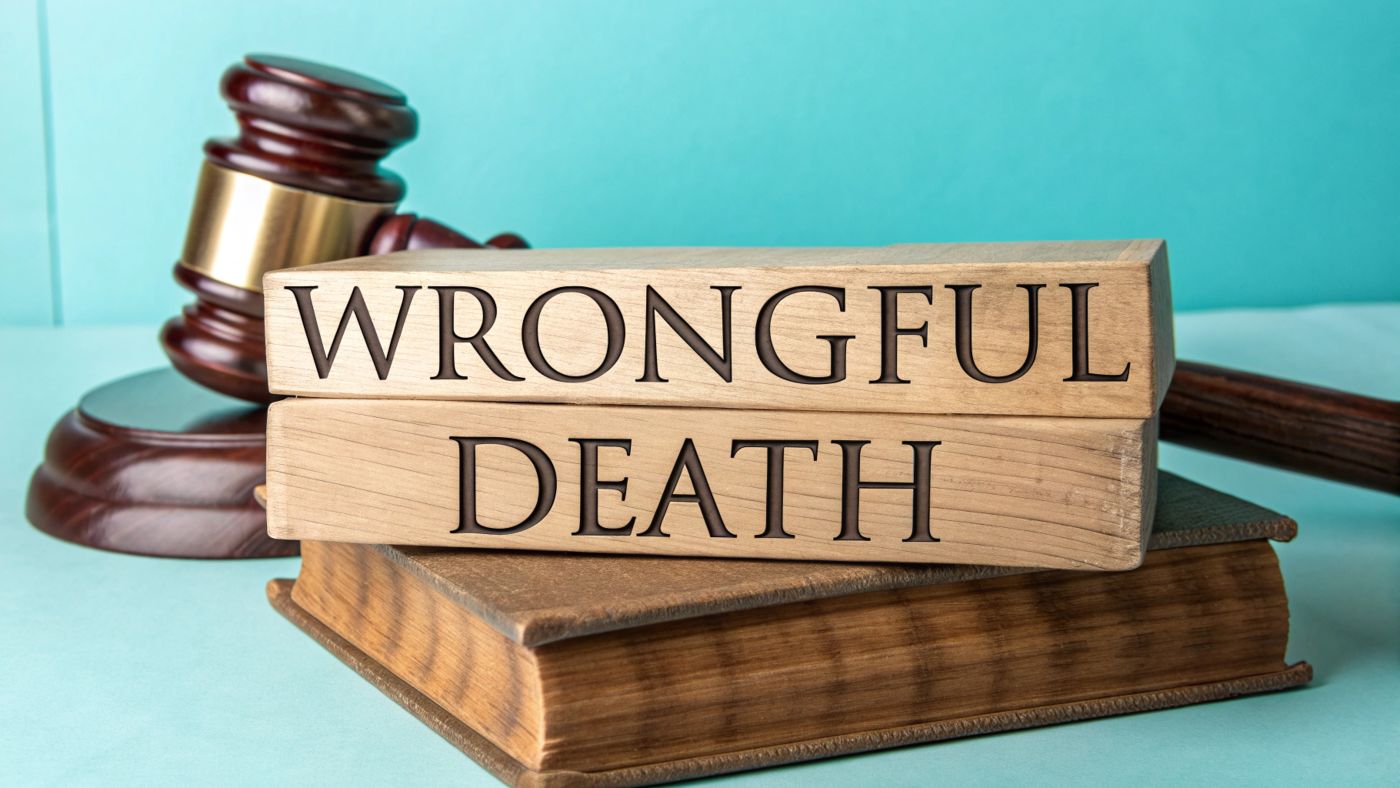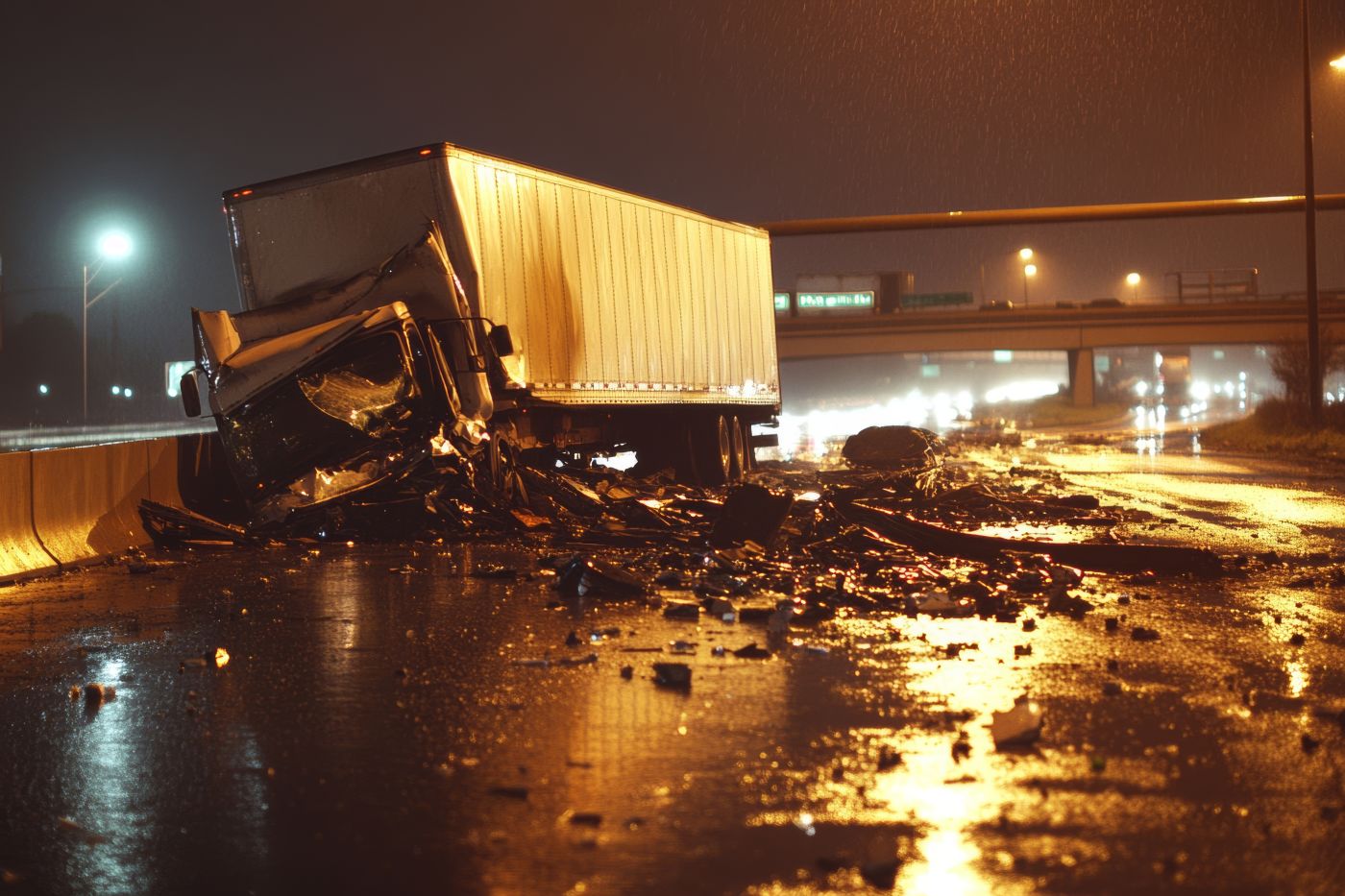
Wrongful death lawsuits are among the most emotionally charged and legally complex cases in civil law. In Kansas, when a loved one dies due to the negligence or intentional actions of another party, surviving family members may seek justice and compensation through a wrongful death claim.
The primary goal of these claims is to provide financial support and a sense of justice to those left behind. Kansas law outlines specific guidelines for the types of damages that can be recovered, who is eligible to file a claim, and the procedures involved.
Wrongful death claims are an intricate and emotional process, and understanding how to recover is crucial. At Harris & Hart Attorneys at Law, located in Overland Park, Kansas, we are equipped with the skill to help you with wrongful death lawsuits. Here, we’ll discuss the various types of damages recoverable in a wrongful death lawsuit under Kansas law.
Wrongful Death in Kansas
Under Kansas Statutes Annotated (K.S.A.) § 60-1901 et seq., a wrongful death occurs when a person dies due to the wrongful act or omission of another. These acts may include:
Negligence (e.g., car accidents, medical malpractice)
Recklessness (e.g., drunk driving)
Intentional misconduct (e.g., assault or homicide)
Dangerous products (e.g., defective machinery)
A wrongful death claim in Kansas is a civil lawsuit, which is separate from any criminal proceedings. While a criminal case seeks punishment for the offender (such as jail time), a wrongful death lawsuit seeks financial compensation for the decedent’s surviving loved ones.
Who Can File a Wrongful Death Claim in Kansas?
Kansas law is relatively broad in terms of who may bring a wrongful death claim. Unlike some states that limit recovery to spouses or children, Kansas permits any heir at law of the deceased to file a lawsuit. This includes:
Spouse
Children (including adult children)
Parents
Siblings
Other relatives, depending on inheritance rights
Only one lawsuit may be filed for a single wrongful death, but multiple heirs may be included as plaintiffs and share in the recovery.
Types of Damages Recoverable in a Kansas Wrongful Death Claim
Kansas law allows both economic and non-economic damages in wrongful death cases. The aim is to compensate for the financial and emotional impact of losing a loved one.
Economic Damages
Economic damages are measurable financial losses that the surviving family members experience as a result of the death. These include:
Medical Expenses
If a person receives medical treatment before their death due to injuries caused by the defendant's actions, their family can recover the costs of that medical care. This includes expenses for ambulance transportation, emergency room services, hospitalization, surgery, and medications.
Medical expenses can be significant, particularly in cases where the deceased required extensive hospitalization before passing away.
Funeral and Burial Costs
Kansas law permits the recovery of reasonable funeral and burial expenses in a wrongful death lawsuit. These expenses can encompass funeral home services, cremation or burial costs, the purchase of a casket or urn, the transportation of the deceased's body, and the acquisition of headstones or grave markers.
This provision in the law aims to ease the financial strain associated with properly honoring and laying the deceased to rest.
Loss of Financial Support
Loss of financial support stands as a major economic damage in wrongful death cases, encompassing the future earnings the deceased would have made, retirement and pension benefits, health insurance, and other employment-related benefits, and even the loss of potential inheritance for survivors.
To accurately assess this loss, an economic expert may be called upon to calculate the deceased's anticipated lifetime earnings, taking into account factors like inflation and taxes.
For families moving through the aftermath of a wrongful death, grasping the types of recoverable damages is an essential initial step. This understanding is vital for those seeking justice, support, and financial compensation for their losses.
Non-Economic Damages
Non-economic damages are more subjective and compensate for the emotional and psychological impact of the death. Kansas recognizes several forms of non-economic loss:
Loss of Companionship, Care, and Guidance
Loss of companionship, care, and guidance represents the intangible contributions a deceased person made to their family. In wrongful death lawsuits, Kansas courts consider the value of parental guidance and care for children, companionship and emotional support for a spouse, and the love and nurturing provided to family members.
Recognizing the unique nature of each relationship, juries may award varying amounts based on the closeness and dependence of each heir on the deceased.
Mental Anguish, Suffering, and Bereavement
Surviving family members in Kansas may recover damages for the emotional distress resulting from a wrongful death, which can include grief, depression, anxiety, and post-traumatic stress. These non-economic damages acknowledge the profound emotional impact beyond financial losses when a loved one dies due to negligence or misconduct.
Loss of Household Services
The deceased may have provided valuable services within the home, such as childcare, home maintenance, cooking and cleaning, and transportation. While these services aren’t directly financial, they often possess a market value and can be considered when determining non-economic compensation in a wrongful death claim.
Kansas law allows families who have lost a loved one due to wrongful conduct to pursue both economic and non-economic damages. Understanding these potential damages is a crucial first step for surviving families seeking justice and support.
Statutory Cap on Non-Economic Damages in Kansas
Unlike economic damages, non-economic damages are capped in Kansas wrongful death claims. As of the current statute (K.S.A. § 60-1903), the total amount of non-economic damages recoverable is limited to $250,000. This cap applies per wrongful death claim, not per plaintiff.
This statutory cap has been a source of legal and political debate, with some arguing it unfairly limits compensation for survivors, particularly in cases of egregious wrongdoing.
Distribution of Damages Among Heirs
Kansas law doesn’t dictate a fixed formula for dividing the damages among heirs. Instead, the court (or jury) will allocate damages equitably among the eligible heirs based on factors such as:
The nature of each heir’s relationship to the deceased
The level of financial and emotional dependence on the deceased
Individual losses suffered by each heir
If the family members can’t agree on the division, the court will hold a hearing to determine the appropriate shares.
Proving Damages in a Wrongful Death Case
To recover damages, plaintiffs must provide clear and convincing evidence. The burden of proof includes:
Demonstrating liability: First, plaintiffs must show that the defendant’s actions (or inaction) directly caused the death. This involves proving negligence (duty, breach, causation, damages), presenting medical records, witness testimony, or expert opinions, and establishing a direct link between the defendant’s conduct and the fatal injury.
Supporting the claim for economic damages: Evidence of economic loss might include pay stubs and tax returns of the deceased, employment and benefits records, and expert testimony on expected future earnings.
Supporting the claim for non-economic damages: Although harder to quantify, non-economic damages are supported by personal testimony from surviving family members, statements from friends, counselors, or clergy, and applicable mental health records.
Jurors are asked to assign a monetary value to intangible losses, which can vary widely based on the evidence presented.
Time Limits for Filing a Wrongful Death Claim in Kansas
Kansas imposes a statute of limitations on wrongful death claims. According to K.S.A. § 60-513, the lawsuit must be filed within two years of the date of death. Failing to file within this period generally results in the case being barred, regardless of its merits.
However, exceptions may apply in cases involving minors or where the cause of death wasn’t immediately known (known as the “discovery rule”).
Comparative Fault and Impact on Damages
Kansas follows the doctrine of comparative fault, which can affect the amount of damages recovered. If the deceased was partially responsible for the incident that led to their death, the total award may be reduced by their percentage of fault.
If the deceased is found to be 50% or more at fault, the family may be barred from recovering any damages under Kansas law.
The Involvement of Legal Counsel
Given the intricacies of Kansas wrongful death laws, families must work with an experienced personal injury attorney. A skilled lawyer can:
Identify eligible heirs
Collect and present necessary evidence
Negotiate settlements with insurance companies
Litigate the case if necessary
Most wrongful death attorneys work on a contingency fee basis, meaning they only get paid if the family receives compensation.
Losing a loved one is one of the most devastating experiences a person can endure. When that loss results from someone else’s negligence or wrongful conduct, Kansas law provides a path to justice and financial recovery.
By allowing families to recover economic and non-economic damages, wrongful death claims serve as both a source of support and a mechanism for accountability. Understanding the types of damages recoverable empowers survivors to seek support and compensation.
Dedicated Legal Defense
While no amount of money can replace a life, a successful wrongful death lawsuit can offer a measure of closure, financial stability, and justice. At Harris & Hart Attorneys at Law, we serve clients in Kansas and Missouri and are equipped with the skill and compassion to help with wrongful death claims. If you need a firm to assist with a wrongful death claim, contact us today.



